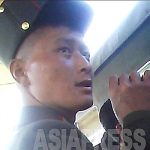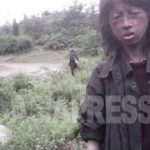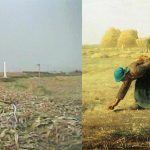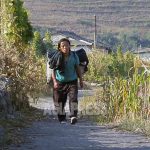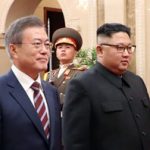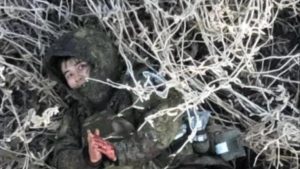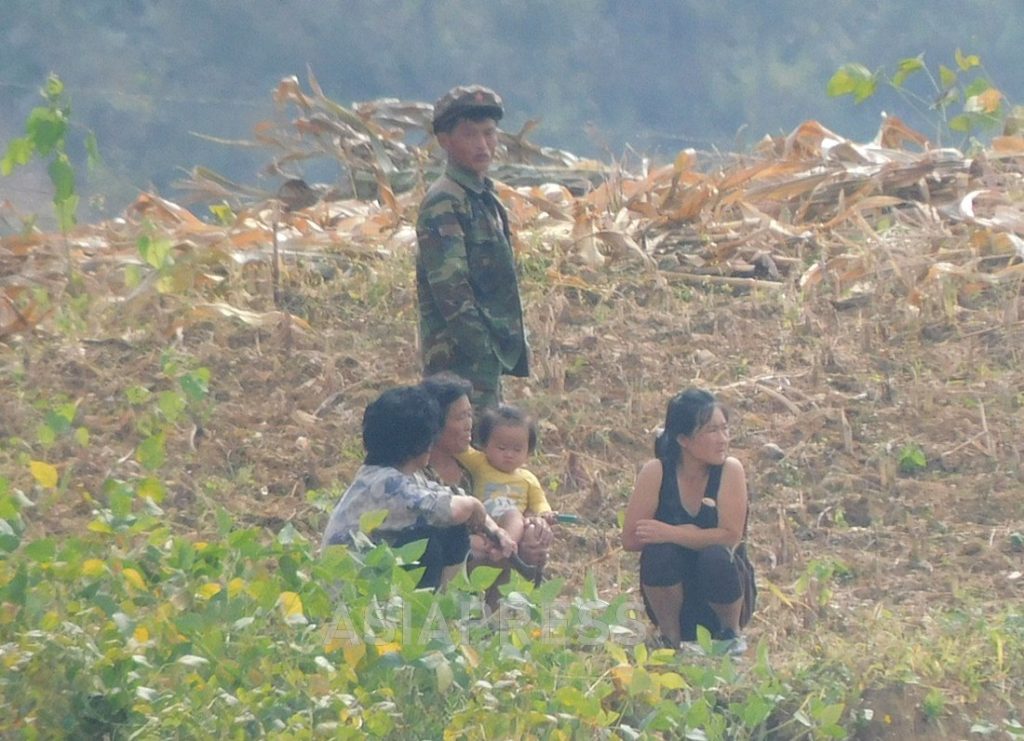
Military units are reportedly being deployed to support agricultural work at a farm in North Hamgyong Province. This year has seen a shift from the traditional "total mobilization" approach—where all residents were mobilized to support farming—to a new system where farms identify their needed workforce and cover the labor and meal costs themselves. As this new approach increases the burden on farms, there's a growing movement to minimize mobilization efforts, making soldiers who can be used for "free" particularly welcome. This information was provided in mid-June by Reporting Partner A, a farm worker. (HONG Mari/KANG Ji-won)
◆ Military Units Stationed in Rural Areas to Help with Farming
According to Reporting Partner A, who lives in North Hamgyong Province, multiple soldiers have been taking turns staying in rural areas to help with farming since May at this farm.
"This year, orders came down that soldiers should play the main role in rural support, so many soldiers came from military units. At our farm, about 50 soldiers were stationed regularly, and sometimes up to one company (about 120 people) would be deployed."
Traditionally in North Korea, every spring during rice planting and weeding seasons, the entire population would be mobilized to support rural areas. This year, however, the system changed so that farms proactively calculate their needed workforce, request it from authorities, and in return provide meals and daily wages for the mobilized personnel.
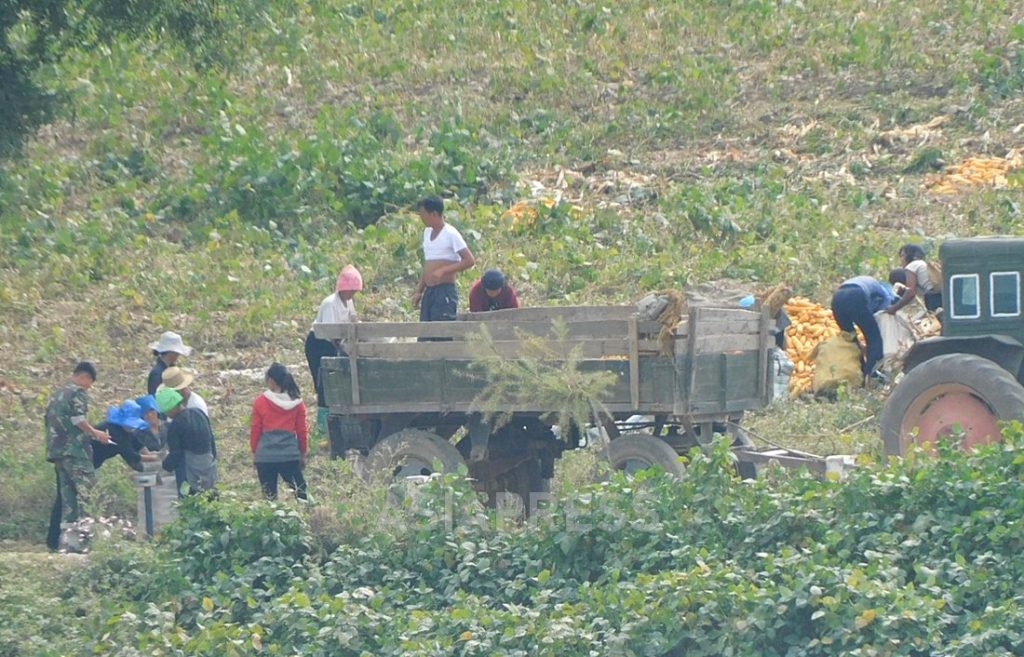
◆ Russian Flour Available, Yet Soldiers Come Begging for Food
For several years, the Kim Jong-un regime has designated farms as "enterprises," allowing them greater discretion in farming methods and product distribution, but this has also increased the burden on farms, as previously reported.
Consequently, farms are trying to handle busy farming periods from spring to early summer independently to avoid the burden of accommodating mobilized workers. However, given North Korea's shortage of energy and agricultural machinery, farming inevitably relies on manual labor, making the deployment of soldiers in military units to farms a desperate measure.
At the farm where Reporting Partner A works, the deployed soldiers receive food rations from the military, so there's no burden on the farm. However, A says these soldiers are suffering from hunger.
"Soldiers are assigned to each farm work group to do daily weeding. Looking at the food they brought from their units, they eat Russian flour, but (the quantity isn't sufficient) so they're always hungry. Weak soldiers go house to house pretending to look for water and beg for food. People secretly give them things like nurungji (scorched rice) because the soldiers remind them of their own children in the military."
※ North Korean farms consist of several to dozens of work teams, under which production units called "bunjjo" are organized. Each bunjjo typically includes about 10 farm workers.
The village worries that having hungry soldiers stationed there might lead to problems like theft or robbery, so a disciplinary organization called "Gyuchal-dae" under the Ministry of Social Security (police) is conducting patrols.
"They say if soldiers cause problems in military-civilian relations, they'll be demoted and sent back to their units, so no major problems have occurred yet. However, there have been many thefts and robberies of clothes, bicycles, and other items (suspected to be committed by soldiers), so the 'Gyuchal-dae' is patrolling."
Under the Kim Jong-un regime, agricultural policy reforms are underway that designate farms as enterprises and give them autonomy from farming to product distribution. From the perspective of farms that must take responsibility for management, they're utilizing military soldiers as free labor—but can such agricultural policy reforms actually work properly?
※ ASIAPRESS smuggles Chinese mobile phones into North Korea to maintain contact.
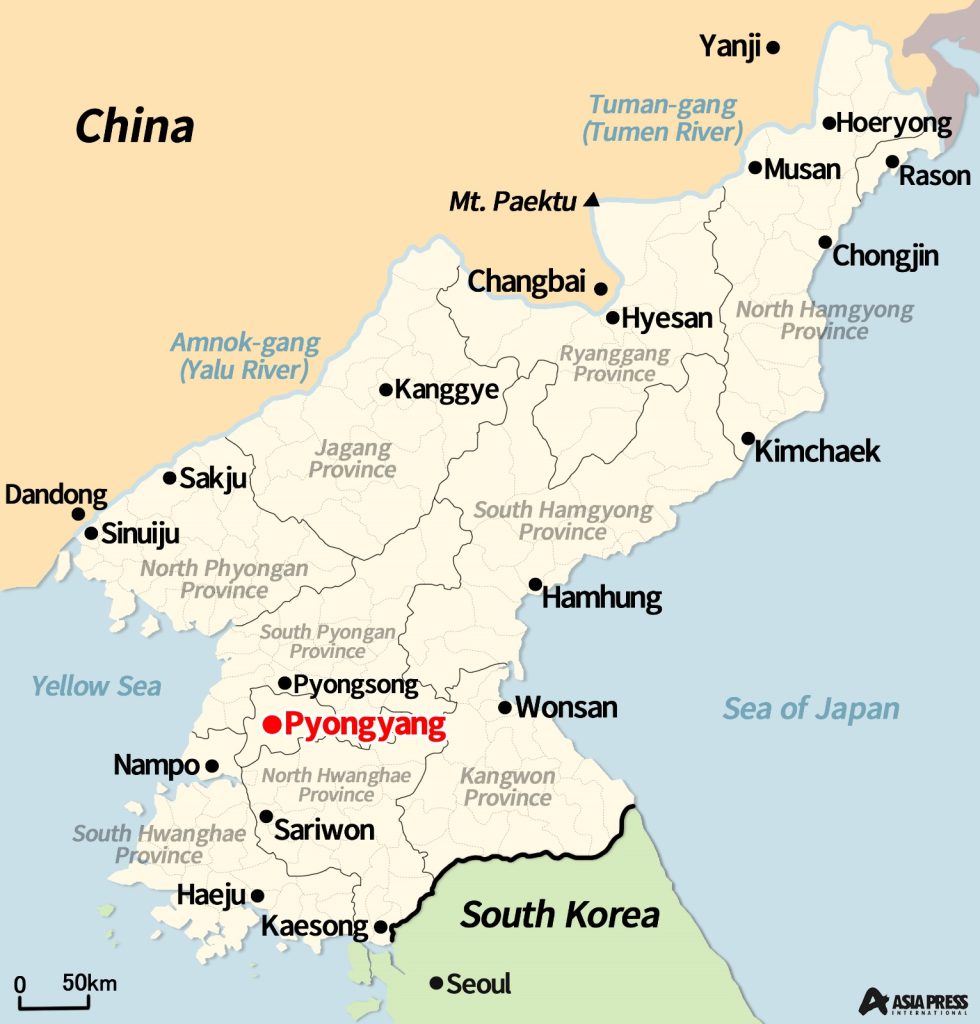
- <Inside N. Korea>Large influx of Russian flour appears underway... Regular sales through grain stores, rations to major mines. Residents without cash unable to purchase
- <North Korea Analysis>How Should We View Kim Jong-un's Agricultural Policy Reform?
- <North Korea Special> What is the Reality of Kim Jong-un's Agricultural Policy Reform? (7) Creating a New Framework for Farm Food Distribution
- <Inside N. Korea>Four Struggling Female Students Expelled and Banished to Rural Areas for Prostitution: Young People's Violation of Order Met with Harsh Punishment
- <Inside N. Korea>"10x Wage Increase" One Year Later: What Happened? (2) "No One Says Life Has Improved" - "Forced Attendance Makes Us Feel Like Government Slaves"
- Who Are the North Korean Soldiers Deployed to Russia? Analysis by a Former 'Storm Corps' Member (3) Poor Training and Hunger... Disappointment in Reality, Yet "I Was Willing to Be a Suicide Soldier"
